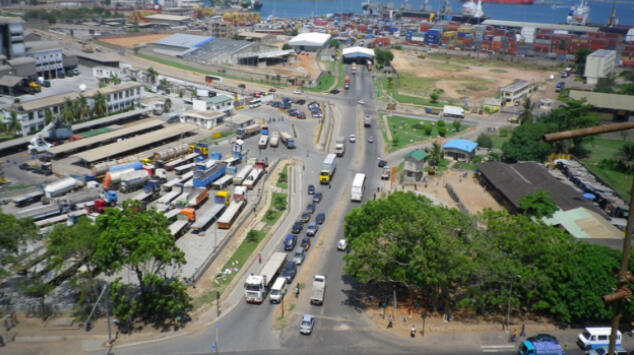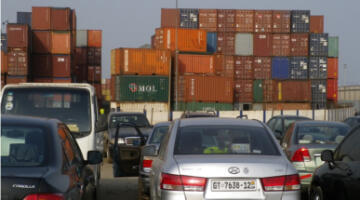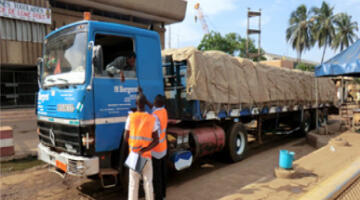
Menu
Menu

In spite of the same region, there is a big economic gap among eight countries composed of seven UEMOA countries (Mali, Burkina Faso, Niger, Senegal, Cote d’Ivoire, Togo, and Benin) and Ghana in Midwest Africa. GDP per capita in Ghana, Cote d’Ivoire, and Senegal, which are coastal countries and have an integrated seaport hub, is more than USD 1,000 (as of 2012), however, the GDP of other countries are almost half of this. Out of 54 countries in Africa, 16 are landlocked, and in such countries the international competitiveness is low due to their disadvantages for foreign trade and high transportation cost.
As a result, the economy of most countries lags behind that of other coastal countries. It is important to develop international corridors connecting landlocked countries and coastal areas in order to improve the economic environment for landlocked countries, and allowing them to transport goods stably and at lower costs. However, there are many bottlenecks such as CIQ (Customs, Immigration and Quarantine) and transportation regulations for commercial trucks. The objectives of the study were to identify such bottlenecks on logistics and estimate cross-border logistics demand through a large-scale traffic survey in the target area.

Inland container yard away from the seaport
Logistics information covering a wide region of eight countries did not exist before. In this Project, we conducted interviews of logistics companies and facility managers, and identified and analyzed the bottlenecks of logistics. As a result, we found many factors combined complexly such as cost issues for shippers, the condition of road infrastructure for logistics enterprises, inadequate monitoring system for overloading trucks for the police, promotion toward users for port management body, relationships among neighboring countries, and agreements on logistics. Also, predicting the amount of inter-regional distribution in the future enabled us to evaluate quantitatively which cross-border corridor is the high priority. These results of the survey are expected to be shared to international organizations such as the World Bank through seminars, and utilized for development of cross-border corridors in this region.

Large-scale traffic survey
Project Details